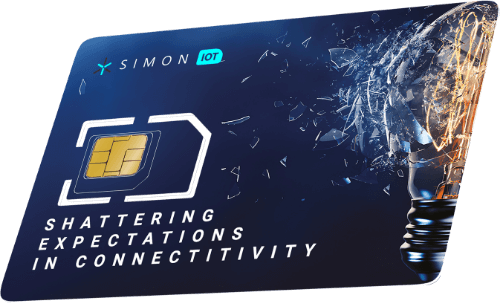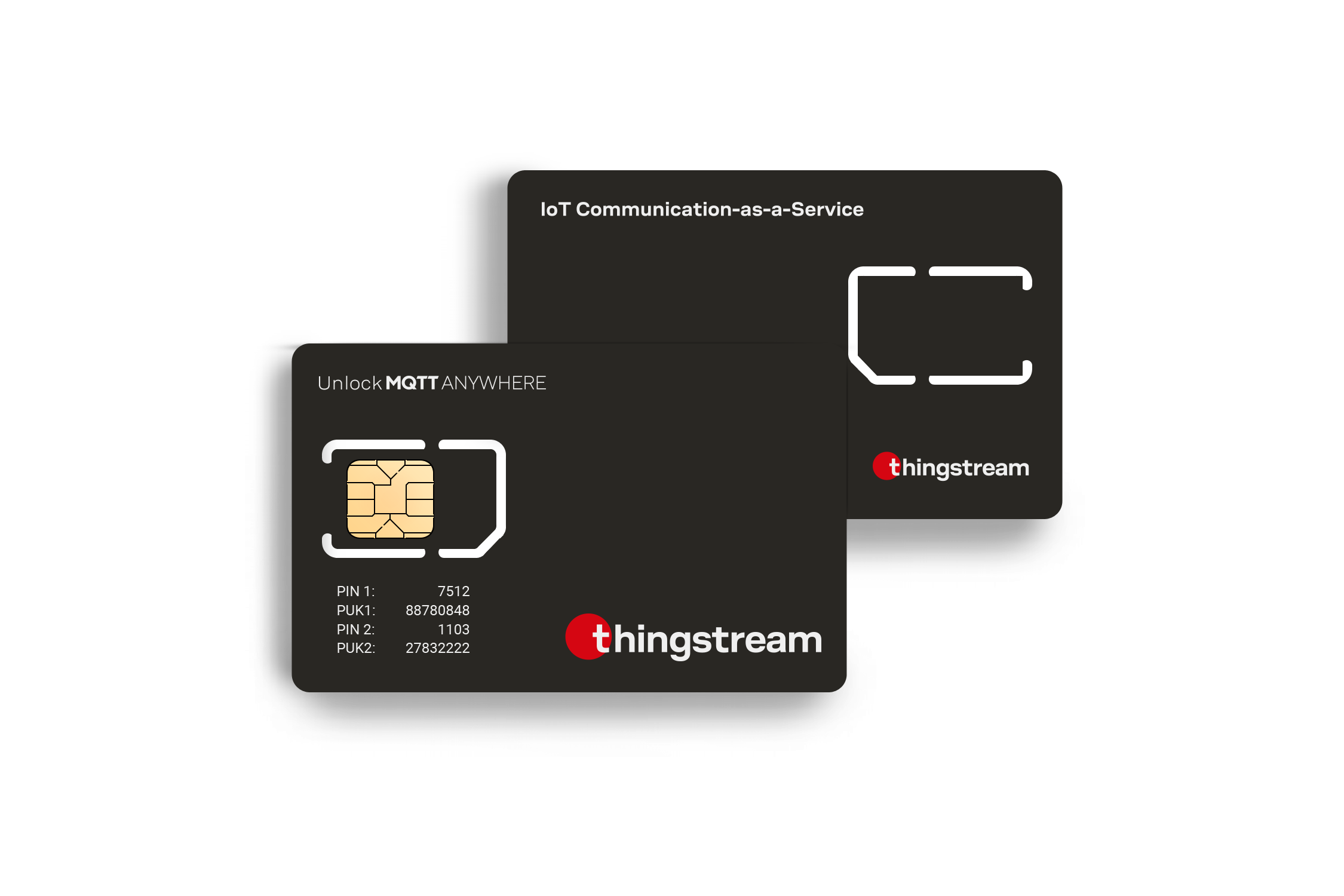Vodafone Iot Sim Card SIM cards stopped working IoT Modules
The position of SIM cards in IoT connectivity is changing into increasingly very important as the world advances towards a extra interconnected landscape. IoT, or the Internet of Things, refers again to the huge network of devices that communicate with one another and exchange information to boost functionality and effectivity. In this ecosystem, SIM cards function an integral part, facilitating wi-fi communication between devices.
SIM playing cards present the required identification that allows IoT units to connect with mobile networks. The distinctive identification numbers programmed into these SIM playing cards allow devices to authenticate their connections with service providers. This is crucial because it helps prevent unauthorized access and ensures that knowledge transfers happen securely.
Iot Single Sim Card IoT SIM card IoT M2M eSIMs
Different kinds of SIM playing cards are available for IoT purposes. Traditional SIM playing cards, embedded SIMs (eSIM), and removable SIMs all serve completely different needs in the IoT house. Traditional SIM cards can be inserted into units needing connectivity, while eSIMs are embedded instantly into devices and are more adaptable to modifications in service suppliers. The versatility of eSIM technology plays a big function in varied IoT functions.

IoT units come in various styles and sizes, from smart residence home equipment to industrial machinery. Each sort of system could have different connectivity needs relying on its objective. SIM playing cards can provide varied knowledge plans tailor-made for particular use circumstances, optimizing communication primarily based on bandwidth requirements, knowledge usage, and different components. This flexibility is instrumental in enhancing the general efficiency of an IoT ecosystem.
Iot Single Sim Card IoT SIM card Networking Protocols Devices
Another aspect of the SIM card's position in IoT connectivity is the flexibility to trace and manage devices remotely. Mobile network operators offer platforms that enable customers to observe their IoT units in real-time. This functionality is especially important in industries similar to logistics and transportation, the place knowing the precise location of property can result in better operational effectivity and value savings.
As IoT units proliferate, managing connectivity turns into extra complex. Here, the role of SIM cards extends to enabling centralized management options that help administer a quantity of gadgets concurrently. This is especially advantageous for enterprises working giant fleets of linked gadgets, which can monitor performance and connectivity more successfully by way of a single administration interface.
2g Iot Sim Card IoT SIM cards
A primary concern in the Internet of Things is safety. With millions of devices connected to the web, guaranteeing the integrity and confidentiality of information is paramount. SIM cards contribute to this security architecture by providing encryption capabilities that safeguard delicate information. The cryptographic keys embedded within SIM cards help secure communications between units, making it troublesome for unauthorized entities to intercept or manipulate information exchanges.
Moreover, the position of SIM cards is evolving as know-how develops. The introduction of Narrowband IoT (NB-IoT) and Long Range Wide Area Networks (LoRaWAN) has opened new avenues for connectivity, significantly for low-power and long-range functions. SIM playing cards designed for these particular technologies allow devices to function effectively over lengthy distances while consuming minimal power. This is especially related for distant monitoring and management techniques, where replacing batteries may be expensive and challenging.
While SIM cards have made strides in enhancing IoT connectivity, they also face challenges. For instance, compatibility points arise when integrating various devices across completely different networks. The introduction of standards and rules aimed toward harmonizing IoT services is an ongoing effort, but the tempo of innovation usually outstrips these measures. Iot Machine To Machine Sim Card. Adapting SIM cards to fulfill numerous requirements is important for ensuring a seamless expertise in the burgeoning IoT landscape.
How Iot Sim Card Works IoT SIMs Any Device Anywhere

The impact of 5G expertise can additionally be reshaping how SIM cards operate inside IoT connectivity. With significantly improved speeds and lowered latency, 5G presents capabilities that redefine IoT purposes, ranging from smart cities to autonomous autos. SIM cards designed particularly for 5G networks will be essential in leveraging the full potential of those next-generation capabilities.
In various sectors, together have a peek here with agriculture, healthcare, and smart cities, the role of SIM playing cards becomes increasingly critical. In agriculture, for example, sensors connected via SIM playing cards can monitor soil conditions, enabling farmers to make informed selections about irrigation and fertilization. Similarly, in healthcare, distant patient monitoring gadgets make the most of SIM playing cards to transmit very important health data to healthcare providers, enhancing affected person care.
The growing reliance on cloud providers in IoT functions typically necessitates sturdy information switch solutions. SIM cards facilitate these connections, enabling gadgets to ship and receive info from cloud platforms successfully. This functionality not only enhances the functionality of IoT options but in addition improves the flexibility to analyze knowledge for better decision-making.
As connectivity evolves, the importance of SIM playing cards in maintaining a strong ecosystem can't be overstated. Their role in identifying, securing, and managing gadgets is central to making sure seamless communication within the IoT panorama. Whether it's by way of traditional SIM playing cards or newer technologies like eSIMs, their significance will solely continue to develop in an more and more connected world.
Iot Board With Sim Card The best IoT SIM Cards
The integration of synthetic intelligence and machine learning into IoT solutions signifies yet another evolution in connectivity. SIM cards that can handle enhanced information processing capabilities might be important for the smart decision-making processes enabled by these technologies. Collectively, these developments will lead to more intelligent methods able to adapting to altering circumstances autonomously.
In conclusion, the function of SIM cards in IoT connectivity is multifaceted and essential for the expansion and sustainability of an interconnected world. By ensuring secure identification, facilitating distant management, and adapting to new technologies, they play a crucial part within the evolution of IoT applications across numerous sectors. As expertise advances, the significance of SIM playing cards copyright iot sim card will only intensify, driving further innovations and improvements in connectivity methods.

- SIM playing cards present a safe and unique identifier for IoT devices, enabling trusted communication within networks.
- They facilitate seamless connectivity in numerous environments, from city areas to distant locations, enhancing the reliability of IoT functions.
- With the appearance of Embedded SIM (eSIM) technology, IoT devices can change carriers simply, bettering community adaptability and decreasing downtime.
- SIM playing cards contribute to information encryption, guaranteeing that the knowledge transmitted between units and networks stays safe against unauthorized access.
- They enable over-the-air updates, allowing manufacturers to push firmware upgrades directly to IoT units without bodily entry.
- By integrating subscription administration, SIM playing cards help in sustaining and monitoring knowledge plans, optimizing prices for companies deploying giant IoT networks.
- SIM playing cards improve gadget monitoring capabilities, making them essential for logistics and asset management in various industries.
- They support multi-network connectivity, which enhances redundancy and reduces the risk of communication failures in critical applications.
- The position of SIM cards in network slicing allows for tailored connectivity solutions, ensuring that different IoT applications receive the suitable bandwidth and latency.
- SIM playing cards are pivotal in facilitating gadget provisioning and management, streamlining the deployment course of for large-scale IoT implementations.undefinedWhat is a SIM card and why is it necessary for IoT?
Iot Sim Card Europe SIM Card IoT Projects Global Deployments
A SIM card is a small chip that enables devices to connect to mobile networks. In IoT, it supplies safe communication and permits units to send and receive data, making them accessible and manageable remotely.
How do SIM cards improve knowledge security in IoT devices?
SIM cards make the most of encryption and authentication protocols that ensure secure communication between the device and the community, defending in opposition to unauthorized entry and knowledge breaches.
What forms of SIM cards are utilized in IoT applications?
How Iot Sim Card Works IoT SIM Card Data Plans Pricing
IoT purposes often use specialised SIM playing cards, similar to M2M SIMs and eSIMs, designed for numerous environments and offering enhanced durability, remote management, and flexibility in connectivity options.
Can IoT devices operate with out SIM cards?
Sim Card Per Iot The best IoT SIM Cards
While it's attainable for IoT devices to connect via Wi-Fi or different wi-fi technologies, SIM playing cards are essential for cellular connectivity and are essential for devices that require extensive protection and roaming capabilities.
What is the difference between traditional SIMs and eSIMs in IoT?
Traditional SIM playing cards are bodily gadgets inserted into units, whereas eSIMs are embedded chips that could be programmed remotely, offering higher flexibility for device manufacturers in managing connectivity without hardware changes.
How do SIM cards contribute to price management in IoT deployments?
Cheap Iot Sim Card IoT and M2M SIM Cards
SIM cards allow optimum connectivity solutions, allowing businesses to pick acceptable knowledge plans and manage knowledge usage effectively, serving to to scale back operational prices associated with data transmission (Nb-Iot Sim Card).
What are the challenges related to using SIM cards in IoT?
Challenges can embrace managing multiple SIM cards for various gadgets, ensuring compatibility, addressing community coverage points, and dealing with potential fraud or security vulnerabilities in mobile communication.
How can companies choose the right SIM card for their IoT needs?
Iot M2m Sim Card SIM Card IoT Projects Global Deployments
Selecting the best SIM includes contemplating elements like community protection, information utilization, device compatibility, long-term scalability, and security measures. Consulting with service providers can help align decisions with operational needs.
What position do SIM playing cards play in future IoT innovations?
SIM cards are very important for enabling next-generation IoT innovations, as they facilitate seamless connectivity, drive automation, and enhance device management capabilities, thus supporting more advanced applications like smart cities and remote healthcare.